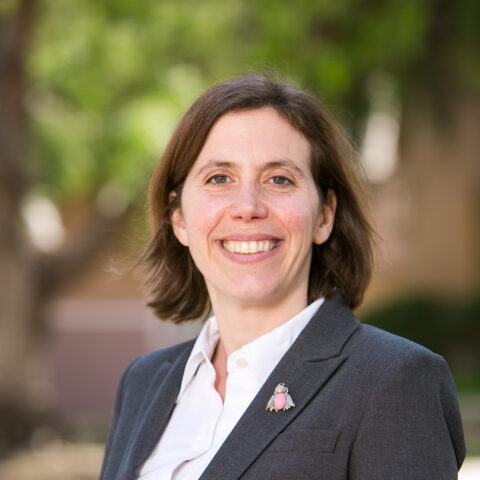USC-Yale Roybal Center for Behavioral Interventions in Aging
USC-Yale Roybal Center for Behavioral Interventions in Aging conducts research that advances healthy aging for older adults who are economically insecure, culturally diverse, and historically under-served. The Roybal Center develops and tests interventions based on insights from behavioral science to promote healthy aging. The Roybal Center aims to strengthen the ability of clinicians to choose or recommend the safest and most effective treatments for their patients through the use of behavioral insights—nudges— that are developed through the center. Ultimately, the Roybal Center will address some of the country’s most pressing population health concerns that are driven by overuse of medical services and under use of comparatively effective services.
Program Leadership
-

Jason Doctor, PhD
Senior Scholar, USC Schaeffer Institute
Norman Topping National Medical Enterprise Chair in Medicine, Professor, and Vice Dean for Faculty Affairs, USC Price School of Public Policy
-

Daniella Meeker, PhD
Associate Professor of Biomedical Informatics & Data Science, Yale School of Medicine
Mission | To advance value-based care through randomized trials and to understand mechanisms of behavior change to promote healthy aging.
Specific Aims

- Understand mechanisms of behavior change that will improve the general effectiveness of interventions that address overuse and underuse of health services in aging populations
- Address crucial problems relating to translation and development of patient- and provider-facing
Interventions
Solicit, select, and facilitate implementation of 10 randomized trials that evaluate interventions and mechanisms of behavior change
The application for the 2025-2026 funding period is now open – see details here.
Co-Investigators for the Roybal Center
-

Mireille Jacobson, PhD
Co-Director, Aging and Cognition Program, USC Schaeffer Center
Senior Scholar, USC Schaeffer Institute
Associate Professor, USC Leonard Davis School of Gerontology
-

Barbara Turner, MD
Co-Investigator and Clinical Advisor, USC-Yale Roybal Center for Behavioral Interventions in Aging
-

Wendy Mack, PhD
Co-Investigator and Biostatistician, USC-Yale Roybal Center for Behavioral Interventions in Aging
-

Fan Li, PhD
Co-Investigator and Biostatistician, USC-Yale Roybal Center for Behavioral Interventions in Aging
Associate Professor of Biostatistics, Yale School of Public Health
Current Roybal Center Training
The Roybal Center funds one post-doctoral fellow to work on research that advances the behavioral sciences. The selected post-doc has access to mentorship and a broad array of resources and data available through the Schaeffer Center.
Chasing Fictitious Variation: Random Outcomes are Misattributed to Skill in Competitive Environments

Craig Brimhall, PhD
Craig Brimhall is a Postdoctoral Fellow at the USC-Yale Roybal Center for Behavioral Interventions in Aging. His research interests include decision making under uncertainty, goal-achievement, and using insights from behavioral science to help people make healthier choices. He received a PhD in Management from the University of Utah, an EdM in Educational Neuroscience from Harvard University, and a BS in Finance from Utah Valley University.
Current Roybal Center Pilot Awardees
More information about current and past pilot awardees can be found here.
A Randomized Trial to Reduce Inappropriate Prescribing to Older Adults Visiting the Emergency Department

PI: Daniella Meeker, PhD
The goal of this work is to conduct a 3-arm cluster randomized trial comparing the effectiveness of medication safety feedback delivered by peers and by anonymous systems to standard of care in 9 emergency departments. This intervention is a modification to the “Enhancing quality of prescribing practices for older adults discharged from the Emergency Department” (EQUiPPED) protocol that optimizes feedback about Potentially Inappropriate Medications (PIM) applying previous findings from behavioral science. Feedback will be modified in the following ways: 1) messages will incorporate aspirational norms – benchmarked to top performing peers rather than the larger distribution, and 2) feedback will be delivered in simplified, tailored messages with actionable recommendations that direct prescribers’ attention to their highest volume PIMs and the alternative therapeutic options from the Beers guidelines. Attending physicians in all groups will receive education of ACEP Beers Criteria at baseline, the control group will continue with Standard of Care.
A Randomized Trial to Encourage Older Adults to Designate a Health Care Proxy

PI: Mireille Jacobson
Designation of a health care proxy reduces surrogate distress, anxiety, and grief, and State and Federal health care quality performance programs continue to offer payments to providers for at least attempting advance care planning (ACP) conversations. Yet only one in three adults in the United States has completed an advanced care plan. Behavioral science may inform our understanding of mechanisms that relate to the poor uptake of health care proxy designation. Patients aged 65 years and older will be randomized to one of 3 study arms: (1) a usual care or control arm that continues to get all standard messaging and materials about ACP, (2) an intervention arm that receives the health care proxy forms and links to online tools or (3) an intervention arm that receives the health care proxy forms and links to online tools along with a planning prompt that encourages the patient to list their health care proxies on a brightly colored index card and bring it with them to their upcoming primary care physician appointment to discuss with their providers.
This project is supported by the National Institute on Aging under the National Institutes of Health, award number P30AG024968. The content is solely the responsibility of the authors and does not necessarily represent the official views of the National Institutes of Health.




You must be logged in to post a comment.